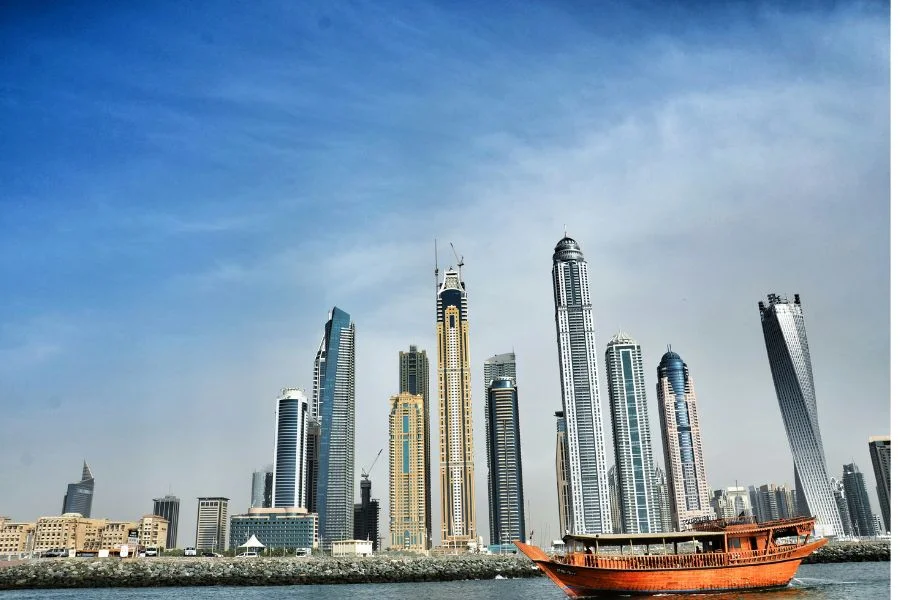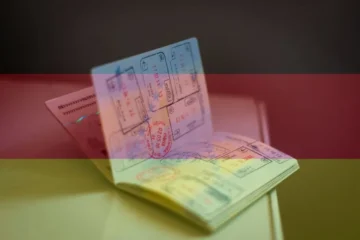Qatar has long been known as a hub for international professionals, offering tax-free salaries, modern infrastructure, and an impressive quality of life. Yet for many expatriates, one question that remains constant is whether a foreign worker can ever turn their Qatari work visa into permanent residency?
The answer is yes, but with important qualifications. While Qatar’s immigration system was once almost entirely temporary in nature, recent reforms have introduced a structured path to permanent residency for selected foreign nationals who contribute significantly to the nation’s economy and society. This guide explores how the system works, who qualifies, and what challenges applicants might face when trying to make Qatar their long-term home.
Key Takeaways
Understanding Qatar’s Work Visa and Residency System
Every foreign national working in Qatar must hold a valid work visa, sponsored by a Qatari employer. The visa, issued under the sponsorship system known as “Kafala,” ties an individual’s residency to their employer. Once a worker enters the country, their employer completes the formalities for the Residence Permit, which allows them to live and work legally in Qatar.
Thinking Long-Term in Qatar? See Your PR Options Now!
We connect you with trusted immigration experts who simplify the entire process — from paperwork to approval.
The typical work visa is renewable annually and linked directly to continued employment. This system ensures that foreign workers contribute to Qatar’s economy under regulated conditions, but it also means that permanent residency has historically been rare. In the past, when employment ended, so did the legal basis to stay in the country. However, the introduction of Qatar’s Permanent Residency Law in 2018 marked a new chapter for long-term expatriates.
Major Work Visa Categories in Qatar
Work visas in Qatar are relatively straightforward, with variations depending on the sector and the applicant’s role. The primary types include the Standard Employment Visa, the Government Sector Visa, and the Qatar Free Zone Work Visa.
Also Read: 91 New Occupations Added to New Zealand’s Work Visa List: AEWV 2025 Update
The standard employment visa is the most common route, typically sponsored by a private company for professionals, technicians, and skilled workers. Those employed in government institutions receive visas managed through public sector agencies. Free zone visas, available through economic zones like Ras Bufontas and Umm Alhoul, offer slightly more flexible conditions and faster processing. While all these visas allow residence and employment, none by themselves guarantee eligibility for permanent residency, as they simply serve as the foundation for long-term legal stay.
Eligibility for Work Visas in Qatar
To obtain a Qatari work visa, applicants must secure an employment offer from a licensed employer in Qatar. The sponsoring company applies to the Ministry of Labour, providing a contract, copies of academic qualifications, a medical certificate, and a police clearance. Once approved, the applicant enters the country and completes the Residence Permit process, including biometric registration and a local medical test.

Eligibility largely depends on the employer’s sponsorship capacity and compliance with labour quotas. High-demand sectors such as healthcare, engineering, construction, IT, and energy see steady visa approvals. While Qatar does not use a points-based immigration system like some Western nations, it values professional experience, good conduct, and contribution to national priorities, factors that also play a role later when applying for permanent residency.
Transitioning from Work Visa to Permanent Residency in Qatar
The path from a temporary work visa to permanent residency in Qatar is selective but possible. Under Law No. 10 of 2018, Qatar introduced a permanent residency permit for up to 100 qualified expatriates per year, granting them rights similar to citizens in specific areas.
To qualify, an applicant must have legally resided in Qatar for at least 20 consecutive years if born outside the country, or 10 years if born in Qatar. Continuous residence means not leaving Qatar for more than 60 days per year during that period. Applicants must also have a lawful source of income, a clean criminal record, and be fluent in Arabic to demonstrate cultural integration. The government gives priority to those who have rendered valuable services to Qatar, such as investors, skilled professionals, and individuals with rare expertise.
Also Read: How to Get Permanent Residency in the Philippines Through a Work Visa?
Once approved, permanent residents receive a special identification card and can reside in Qatar without the need for an employer sponsor, a significant departure from the traditional system.
The Application Process and Required Documents
Applications for permanent residency are submitted to the Ministry of Interior through its designated portal or service centers. The key documents include a valid passport, a current Residence Permit, proof of continuous residence, salary certificates, bank statements, criminal record clearance, a medical fitness certificate, and evidence of Arabic proficiency. Applicants must also submit documents demonstrating their professional contribution or investment in Qatar’s economy.
The Ministry reviews applications in detail, and decisions are made at a high administrative level. Those selected receive a Permanent Residency Card, which entitles them to benefits such as access to government health services, education in public schools, and the right to own property in designated areas.
Typical Timeframes and Practical Considerations
The journey from work visa holder to permanent resident in Qatar is lengthy and requires patience. The 20-year residence requirement means that most expatriates working in Qatar today are still several years away from eligibility. However, those who have spent long periods in the country under continuous employment and lawful residence may already meet the criteria.

The review process itself can take several months, depending on the volume of applications and security verifications. Unlike many Western immigration systems, there is no automatic conversion from work visa to permanent residency; it is a separate, merit-based selection overseen by the Ministry of Interior. Therefore, maintaining legal status, clean records, and steady employment is essential throughout the applicant’s stay.
Common Challenges Applicants Face
The biggest challenge for most expatriates is the length of the qualifying period and the requirement for continuous residence. Frequent travel, job changes, or sponsorship lapses can interrupt eligibility. Another challenge is demonstrating sufficient Arabic proficiency, which is mandatory but often overlooked by long-term expatriates working in English-dominated environments.
In addition, since the number of permanent residency slots is limited each year, competition is high. Applicants must present a strong case for their contribution to the country, such as economic investment, professional achievements, or public service. For many workers, the reality is that long-term residence through renewable work permits remains the more practical solution unless they meet the exceptional criteria for PR.
Benefits of Permanent Residency in Qatar
For those who qualify, the benefits of Qatari permanent residency are substantial. Permanent residents can live and work in Qatar without a sponsor, own property in selected zones, and access public healthcare and education. They can also sponsor their immediate family members without the same restrictions that apply to regular expatriate workers. Some business privileges are also extended, such as the ability to invest in commercial activities without needing a Qatari partner.
Also Read: How Singapore’s New 180-Day Rule Affects Your PR Status in 2025
In a country where most foreign workers depend heavily on their employers for legal status, these freedoms mark a remarkable shift toward inclusion for long-term contributors.
Conclusion: Is the Work-to-PR Route in Qatar Realistic?
For the majority of foreign professionals, Qatar remains primarily a temporary work destination, but the introduction of the permanent residency framework is a clear sign of policy evolution. While the qualifying bar is high, requiring decades of residence, proven contributions, and linguistic integration, the system provides a genuine path for those deeply rooted in the country’s economic and social fabric.
In essence, a work visa in Qatar can be the first step toward permanent residency, but it is not a guarantee. Those who view Qatar as a long-term base should focus on maintaining lawful status, learning Arabic, and building tangible contributions to the nation’s growth. The reward for those who meet the criteria is exceptional stability and recognition in one of the Gulf’s most dynamic economies.
Reference: https://portal.moi.gov.qa/wps/portal/MOIInternet/departmentcommittees/permanentresidency





